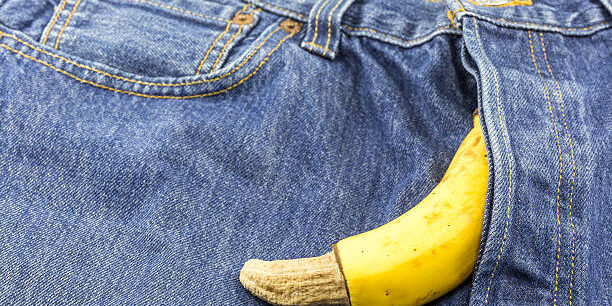Refractory period or the “down time” after you release—is a natural part of the male sexual cycle and can be understood as a reset mechanism.
The refractory period is a natural physiological phase that occurs after a man ejaculates, marking a temporary halt to sexual arousal and activity. This period is a fascinating biological process that speaks volumes about how the body prioritizes rest, recovery, and balance.
What Happens During the Refractory Period?
After ejaculation, the body undergoes physical, hormonal, and neurological changes that temporarily inhibit further sexual activity. Let’s break it down:
1. Hormonal Shifts
The release of prolactin is a key factor. This hormone surges after orgasm, suppressing arousal by reducing dopamine, the neurotransmitter that drives pleasure and sexual motivation.
Higher levels of prolactin are linked to longer refractory periods, making this hormone a central player in the recovery phase.
2. Nervous System Reset
The parasympathetic nervous system takes over, promoting relaxation and recovery. This shift slows the heart rate and redirects blood flow away from the penis, making it difficult to achieve another erection immediately.
3. Physical Recovery
Erections require significant blood flow and energy. After ejaculation, the body takes time to restore these resources.
4. Sensory Desensitization
Many men experience heightened sensitivity or even discomfort in the genital area immediately after orgasm. This sensory response acts as a natural barrier to further stimulation.
Why Does the Refractory Period Vary?
The length of the refractory period isn’t the same for everyone, and it can even change for the same person over time. Here’s why:
1. Age and Testosterone Levels
Younger men often have shorter refractory periods, sometimes just a few minutes, thanks to higher testosterone levels and overall vitality, but as men age, testosterone production naturally declines, which can extend the time needed for recovery.
2. Health and Lifestyle
Physical health: Poor cardiovascular health, obesity, or chronic conditions like diabetes can lengthen the refractory period by impairing blood flow and nerve function.
Lifestyle choices: Smoking, excessive alcohol and lack of exercise negatively impact sexual health, while a balanced diet and regular activity can shorten recovery time.
3. Mental State
Stress, anxiety, and emotional factors play a significant role. A man who is relaxed and emotionally secure may have a shorter refractory period compared to someone experiencing tension or self-doubt.
4. Prolactin Sensitivity
Some individuals naturally produce more prolactin or are more sensitive to its effects, leading to longer recovery times.
5. Frequency of Sexual Activity
Men who ejaculate frequently may find their refractory period increasing as the body requires more time to replenish energy and sperm production.
How Long Does the Refractory Period Last?
There’s no universal answer to this question, as refractory periods can range from a few minutes to several days. On average:
– Teenagers and Men in Their 20s: 5–15 minutes
– Men in Their 30s and 40s: 30 minutes to an hour
– Men 50 and Older: Several hours to a day or more
However, these are general trends and individual experiences vary.
How to Optimize Your Refractory Period
While the refractory period is a natural and unavoidable process, there are steps you can take to support your body and potentially reduce recovery time:
1. Support Hormonal Balance
Engage in regular strength training, which helps boost testosterone. Also incorporate foods rich in zinc (e.g., shellfish, nuts) and vitamin D into your diet, as these nutrients support testosterone production.
2. Maintain Cardiovascular Health
Regular cardio exercise improves blood flow, which is crucial for achieving erections and shortening recovery time.
3. Reduce Stress
High stress increases cortisol, a hormone that suppresses testosterone. Practice mindfulness or relaxation techniques to keep stress levels in check.
4. Experiment with Foreplay
If your refractory period is longer, focus on non-penetrative forms of intimacy during recovery. This keeps the emotional connection alive while allowing your body to recharge.
5. Consider Medical Help When Needed(Reach out to us)
If you notice a sudden or drastic increase in your refractory period, consult a healthcare professional. Low testosterone, erectile dysfunction, or other conditions may be the underlying cause. Reach out to us on WhatsApp.
Refractory Period Myths and Misconceptions
1. It’s All in Your Head
While mental factors can influence the refractory period, the process is primarily physiological. Hormonal and neurological changes are the primary drivers.
2. Shorter Is Always Better
A shorter refractory period doesn’t necessarily mean better sexual performance or satisfaction. Sexual fulfillment is about connection, not just speed.
3. It Only Affects Older Men
Even young men experience refractory periods. Age may extend the duration, but the refractory phase is universal for all men.
Embracing the Refractory Period
The refractory period isn’t a flaw, it’s a natural part of how the male body functions. It serves as a built-in recovery mechanism, allowing the body to restore balance and energy. Instead of viewing it as an obstacle, embrace it as an opportunity to rest and also explore intimacy in other ways.
By understanding your body and taking steps to maintain your overall health, you can make the most of your sexual experiences while respecting the natural rhythms of recovery. Remember, quality matters more than quantity when it comes to connection and satisfaction.






